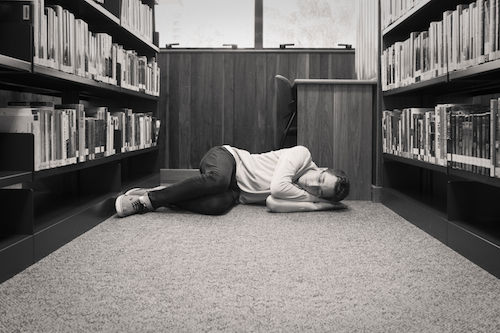Are we getting enough sleep?
Welcome back to school! Whether or not you enjoyed this winter (or summer, if you’d prefer) break by watching the World Cup, I’m sure you can agree with me when I say that this vacation was more than necessary for all of us to get ready for yet another busy semester. As we all return to school, we eagerly greet our friends and teachers, but there are also new faces to get to meet, which includes the 42 new students and teachers joining the community for the first time.

Now that school has already started, I feel reluctant to wake up at 7 a.m. every morning on weekdays; I miss those vacation days when I didn’t have an alarm ringing in my ears. My morning routine now consists of me attempting to squeeze in the getting-ready stages in a short amount of time, while simultaneously calculating how long it will take, with traffic of course, to get to school. I rush to arrive at the classroom before the clock’s digits turn to 8:10. But is 8:10 really the best time for class to start? Like senior Gabi Campos, who explored a similar topic in her Extended Essay, I wondered what the answer was to this question.
In a study conducted by researchers at the Bradley Hasbro Children’s Research Center in Rhode Island, it was found that positive changes occurred to the sleep and waking mood of 197 high-school students, just by delaying the school start time from 8 a.m. to 8:25 a.m. Not only did the students experience an average of 29 minutes of more sleep, but they also experienced improvements to their mood, as well as a significant reduction in their sleepiness throughout the day. It was also highly correlated, in other research, that changes to the start time of school drastically changed the sleep, spirit, and daytime functioning of students. Furthermore, changing the school start time from 8 to 8:30 resulted in a drastic rise in the sleep time of students at a Rhode Island high school, with an average increase in sleep of 45 minutes.
Sleep is important for everyone, and arguably even more so for high school students. Teens need 9-10 hours of sleep every night, but because of all our academic and extracurricular demands, we often don’t have that time to spare. I am sure the majority of students at Graded can tell stories of their lack of sleep during the busy weeks at school. Studies have significantly supported the fact that insufficient sleep can affect learning and academic performance, as well as mood and behavior. For example, students are more likely to perform worse on tests and receive lower grades. They can become more susceptible to a range of unhealthy behaviors, and in more severe cases, chronic sleep deprivation can even lead to a vulnerability to depression.
Research strongly shows how much sleep is important in our lives, and the fact that a small change in start time can be so significant to the overall health of students is definitely something that should be given due consideration. One can’t help but wonder what kind of positive changes could happen if Graded delayed its start time, even by a short 25 minutes.
Source: psychologytoday.com

Sylvia, sometimes referred to as Sassy Sylvia, is the Features Editor. She has been part of The Talon for two years. Her passions include listening to...

Gabriel Civita is the Image Master for The Talon after being the photographer last year. Basically, he’s still a photographer, but with a fancier title....









